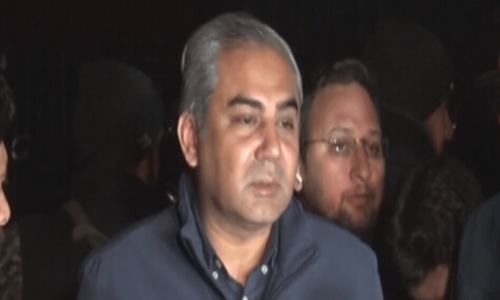PESHAWAR: The outbreak of dengue haemorrhagic fever in Tehkal area has set alarm bells ringing at health department amid reports of two deaths in the provincial metropolis by the ailment caused by bite of mosquito.
Sources said that authorities screened 1,000 persons of whom 150 tested positive, mostly from the same locality. They said that two persons including 65-year-old Rustam Khan and 22-year-old Huma Bibi died of dengue at Khyber Teaching Hospital.
“Mohammad Imran is at intensive care unit of KTH where 42 other patients are still under-treatment,” they said. Three patients, one each from Pishtakhara, Regi and University Town were treated at the hospital.
“Forty patients confirmed on rapid kits have been sent home after their recovery. Two people are still under treatment at Hayatabad Medical Complex, which received a total of seven patients,” said sources.
The administration of KTH, which is receiving bulk of patients due to its proximity with the endemic locality, has requested health department to provide 50 nurses, 200 impregnated bed nets, PCR machine, 1,000 kits, four plasmapheresis machines and additional funds to cope with the situation. It said that KTH received 90 per cent of the patients.
Scores of patients belonging to Tehkal area hospitalised
“We have launched awareness campaign in union council 38, 39 and 40 in Tehkal where an outbreak has been affecting people,” Dr Shaheen Afridi, deputy director health, told Dawn.
She said that they in collaboration with the district government launched public awareness drive regarding the causative agents of the disease to safeguard people. “Not only public sector hospitals but we are also in touch with the private health facilities to ensure diagnosis and treatment of the patients,” she said.
A statement issued from the office of the deputy commissioner said that they had recorded one death caused by the disease that was being investigated. It said that spray was being done in the affected locality twice a day and people were being asked to adopt protective measures to remain safe.
The statement said that government distributed 10,000 pamphlets and 2,000 panaflex as part of the advocacy campaign in the area.
Sources at hospitals said that the situation might turn dangerous as the highly infective months of August and September were yet to come. Health department should take measures to eliminate eggs and larvae in the stagnant water pools in and outside homes.
They said that people should be told about the causes of the disease. They should be informed to cover water pots and spray kerosene oil on the water pools to deny potential breeding grounds to the mosquitoes to make their surroundings dengue-free.
“We need aggressive and sustained campaigns in bazaars to inform owners of tyre shops to carry out spray and avoid accumulation of water,” said a senior physician.
Symptoms of the dengue fever are high fever, severe frontal headache, retro-orbital pain, myalgia, arthralgias, nausea and often a macula popular rash. In addition, many patients may notice a change in taste sensation.
The illness is clinically indistinguishable from influenza, measles or rubella. This acute phase lasts up to one week followed by one to two weeks period of convalescence characterised by weakness, malaise and anorexia.
Physicians also questioned the way the patients from vector-borne disease were being treated. They demanded a standard protocol.
“We have been treating suspected dengue fever cases symptomatically their tests emerge positive on the rapid kits. We should be sending samples to National Institute of Health Islamabad, the only authorised public sector institution to confirm or exclude presence of dengue virus,” they said.
Published in Dawn, August 2nd, 2017













































Dear visitor, the comments section is undergoing an overhaul and will return soon.